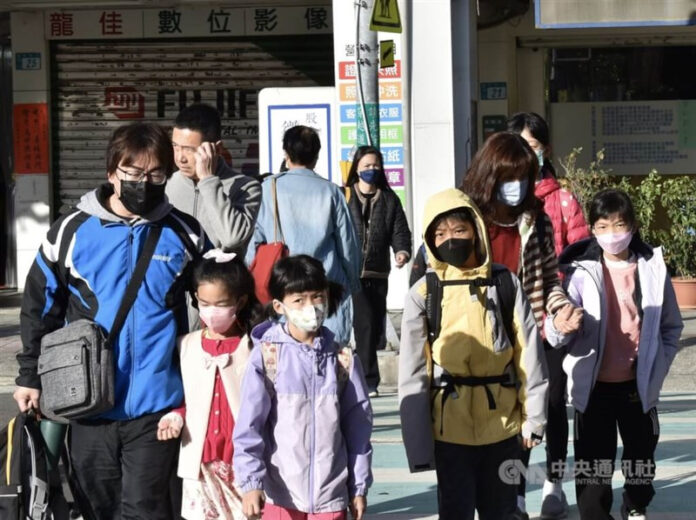Introduction:
Taiwan has reported a rise in whooping cough cases, with the total number of infections reaching 30 this year. The latest surge in cases underscores the importance of vaccination and early detection, especially as the highly contagious bacterial disease spreads across communities.
Details of the Latest Cases:
According to the Taiwan Centers for Disease Control (CDC), two additional individuals were confirmed to have contracted whooping cough, also known as pertussis. This brings the nationwide total to 30 cases as of Thursday. One of the recent cases involves a 12-year-old boy who first exhibited symptoms at the end of November.
The boy’s symptoms began with a fever, cough with phlegm, and a loss of appetite. After seeing no improvement in his condition, his family sought medical help on December 9. Following tests, the boy was confirmed to have whooping cough on December 12.
Whooping Cough Symptoms and Spread:
Whooping cough is a highly contagious respiratory illness caused by the Bordetella pertussis bacteria. Although it is vaccine-preventable, the disease remains a concern due to its ability to spread easily in close-knit environments such as homes and schools.
Symptoms of Whooping Cough:
- Sudden severe coughing fits
- Wheezing when coughing
- Vomiting after coughing episodes
- Changes in skin color during coughing fits
In addition to the 12-year-old boy, one of his classmates, a 16-year-old, was also diagnosed with whooping cough on December 17. This has led to 30 individuals being placed under observation for potential exposure, including family members and classmates. These individuals will be monitored until January 7 next year.
Domestic vs Imported Cases:
Out of the 30 recorded cases of whooping cough in Taiwan this year, 29 were domestic infections, while one case was imported. The number of cases for 2024 is comparable to the highest case numbers in 2019, with a yearly range of 0 to 32 cases recorded between 2019 and 2023.
Vaccine Recommendations:
To prevent the spread of whooping cough, the CDC is urging parents to ensure their children are vaccinated according to the recommended schedule. The vaccine is crucial for infants as young as 2 months old, with booster shots given at 4 months, 6 months, and 18 months. The CDC also advises children starting elementary school to receive a whooping cough vaccination.
Preventive Measures for Families and Communities:
The CDC has emphasized that anyone experiencing symptoms like sudden coughing, wheezing, and vomiting after coughing should seek medical attention immediately. Prompt diagnosis and treatment can help reduce the spread of the disease, especially in households with vulnerable individuals like infants and the elderly.
Table: Key Facts About Whooping Cough in Taiwan
| Fact | Details |
|---|---|
| Total Cases in 2024 | 30 (29 domestic, 1 imported) |
| Highest Case Year | 2019 (highest case numbers in recent years) |
| Age Groups Affected | Mainly infants (3 months or younger) and adults (20+) |
| Vaccine Schedule | 2, 4, 6, 18 months, and before elementary school |
| Symptoms | Severe cough, wheezing, vomiting after coughing |
Frequently Asked Questions (FAQs):
1. What is whooping cough?
Whooping cough, or pertussis, is a contagious bacterial disease that causes severe coughing fits. It can lead to complications, particularly in infants and young children.
2. How is whooping cough spread?
The disease spreads through respiratory droplets when an infected person coughs or sneezes, making it highly contagious in crowded settings like schools.
3. Who is at risk for whooping cough?
Infants under 3 months, children who are not fully vaccinated, and adults, especially those over 20, are at higher risk.
4. How can whooping cough be prevented?
The disease can be prevented through vaccination, which is recommended for infants, children, and adults. Booster shots are especially important for pregnant women and those in close contact with infants.
5. What should I do if I or my child shows symptoms?
If you experience sudden severe coughing fits, wheezing, or vomiting after coughing, seek medical attention immediately to prevent spreading the disease and to receive appropriate treatment.
Conclusion:
With the rise in whooping cough cases in Taiwan, it is vital for families to be vigilant about vaccination and to seek medical attention if symptoms arise. The Taiwan Centers for Disease Control continues to monitor the situation, urging the public to be proactive in preventing the spread of this contagious disease.
